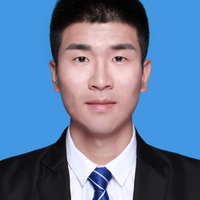Welcome to Lin Zhao’s PhD Defense “Remote Driving of Road Vehicles: Feedback Effects, Latency Compensation, and Driver Behavior”
Welcome to Lin Zhao’s PhD defense: "Remote Driving of Road Vehicles: Feedback Effects, Latency Compensation, and Driver Behavior"!
Lin Zhao is a PhD student at KTH, Engineering Mechanics and ITRL. His mainly research direction is remote driving vehicle dynamic control. He mainly concentrates on steering feedback control, motion cueing control of remote driving simulator, remote driving assistant system control, human-machine interaction and so on.
Lin is one of the PhD students, who has been working in the REDO2 (and REDO) project associated with SAFER.
Opponent: Professor Gabor Orosz, University of Michigan, USA
Main Supervisor: Assoc. Prof. Mikael Nybacka
Co-Supervisors: Asst. Prof. Malte Rothhämel, Prof. Jonas Mårtensson
Abstract
Remote driving has appeared as an effective solution to address challenges in achieving full autonomy for vehicles, bridging the gap between Level 4 and Level 5 autonomy. Beyond autonomous vehicles (AVs), remote driving can be widely applied in various industries, such as mining, timber cutting, and warehouse logistics, where it can enhance safety, efficiency, and operational reliability. Despite its advantages, remote driving faces significant challenges, including latency, and reduced situational awareness, which impact remote drivers’ performance and experience. This thesis delves into these challenges and investigates solutions to enhance teleoperated driving systems, focusing on user experience, driving feedback and delay compensation.
The research is structured around six research questions, examining the influence of driving feedback on driving behavior and user experience, and strategies to mitigate latency in remote driving and its influence on remote drivers, as well as the learning rate of remote drivers. An integrated approach including quantitative and qualitative analysis is employed, combining experimental studies on a real-life remote driving platform and hardware-in-the-loop (HIL) simulations using IPG CarMaker. Comprehensive experiments evaluate the impact of steering force, motion-cueing, and sound and vibration feedback on driving behavior and experience. Additionally, innovative delay compensation strategies, including an enhanced model-free predictor and a square-root cubature Kalman filter-based predictor, are developed and validated to address signal transmission challenges. Finally, the learning rate of remote drivers under the delayed environment are also explored on a driving simulator.
The research results demonstrate that integrating multimodal driving feedback, such as steering force, motion-cueing, sound, and vibration, can substantially enhance remote drivers’ situational awareness and perceived confidence. However, delays in these feedback channels, particularly motion cues, are found to degrade driving precision and control stability. These challenges highlight the need for more robust delay compensation strategies. In response, a square-root cubature Kalman filter-based predictor is developed, significantly outperforming conventional approaches by maintaining accurate state prediction under latency. It is also found that remote drivers can be used for a certain driving task after 4–5 training rounds in delayed scenarios, suggesting a low adaptation threshold. These findings not only validate the technical feasibility of the proposed methods but also offer practical advantages in deploying scalable, operator-friendly remote driving systems in dynamic, real-world environments.
While the experiments provide meaningful results, certain limitations exist, including the use of a single 4G SIM card for communication and controlled testing environments. Future studies could explore dual-carrier 5G setups and advanced feedback systems to further enhance remote driving platforms.
Overall, this research contributes to the growing field of remote driving by addressing critical challenges and proposing actionable solutions, paving the way for safer, more efficient, and scalable remote driving systems across diverse applications.

